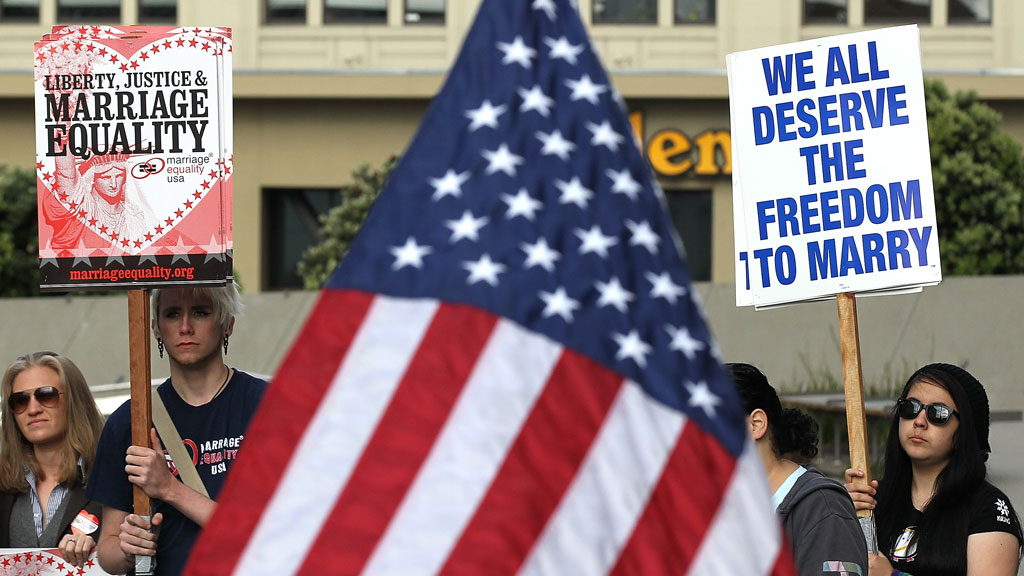US Supreme Court could rule on gay marriage disputes
Is gay marriage a constitutional right – and should same sex partners get the same benefits as heterosexual couples? America’s highest court is poised to wade into the debate.

Same-sex marriage is banned in 31 states, and legal in six, along with the District of Columbia: voters in four more states are yet to take a decision. But the status of same-sex marriage is still legally fraught, with 10 cases now pending in front of the US Supreme Court.
Justices met on Friday to consider whether to hear arguments and a decision could be announced as early as Monday morning, leaving activists on both sides of the issue holding their breath.
At the moment, US federal law enshrines the Defense of Marriage Act, or DOMA, passed by Congress in 1996. The Act states that marriage can only be a union between a man and a woman, which is now being challenged under the provision in the constitution entitling people to equal protection.
These challenges come from gay or lesbian partners who want to be able to claim the same federal benefits as heterosexual couples, like social security, pensions and military benefits.
Equal protection
If the Supreme Court does proceed, oral arguments could begin within months, and a decision might be ready by June 2013. However, even if the equal protection argument won through, it would still be up to individual states to decide if they wanted to make same sex marriage legal or not.
There is also a challenge to California’s Proposition 8 ban on same sex marriage, which was narrowly approved in a ballot in 2008. Hollingsworth v Perry had tried to establish a constitutional right to the unions: and when the Ninth Circuit heard the case, the court ruled that the state could not take away a right it had previously allowed.
If the Supreme Court decides not to hear the issue, then that lower court ruling will stand, opening the door for gay marriages in California. If they do take up the case, then those marriages will remain on hold until there is a ruling, which could be many months away. But the couple who successfully brought the original challenge has a wider goal: getting the court to issue a blanket ruling that marriage is a constitutional right.
And then there is Arizona, which already bans same-sex marriage, but now wants to reintroduce a new state version of DOMA, getting rid of health care benefits for gay or lesbian partners of state employees. This, after gay couples sued the Arizona authorities, and won.
Setting a precedent?
If any of the cases do go to court, it is unlikely that anyone from the Obama administration would appear to defend DOMA. Indeed, when the president gave his public support to same sex couples, he asked Attorney General Eric Holder not to appear in court to support the act.
House Republicans have taken on constitutional lawyer Paul Clement to make their case. In his briefing, he stated that DOMA “merely reaffirmed and codified the traditional definition of marriage: what Congress itself has always meant and what courts and the executive branch have always understood it to mean – in using those words: a traditional male-female couple.”
But to date, about 100,00 lesbian and gay couples across the US are married, with just under a third of them bringing up children. Times, and attitudes, have substantially changed since 1996.
So will the justices take any or all of these cases? Stand by for another wave of legal controversy.
Felicity Spector writes about US affairs for Channel 4 News